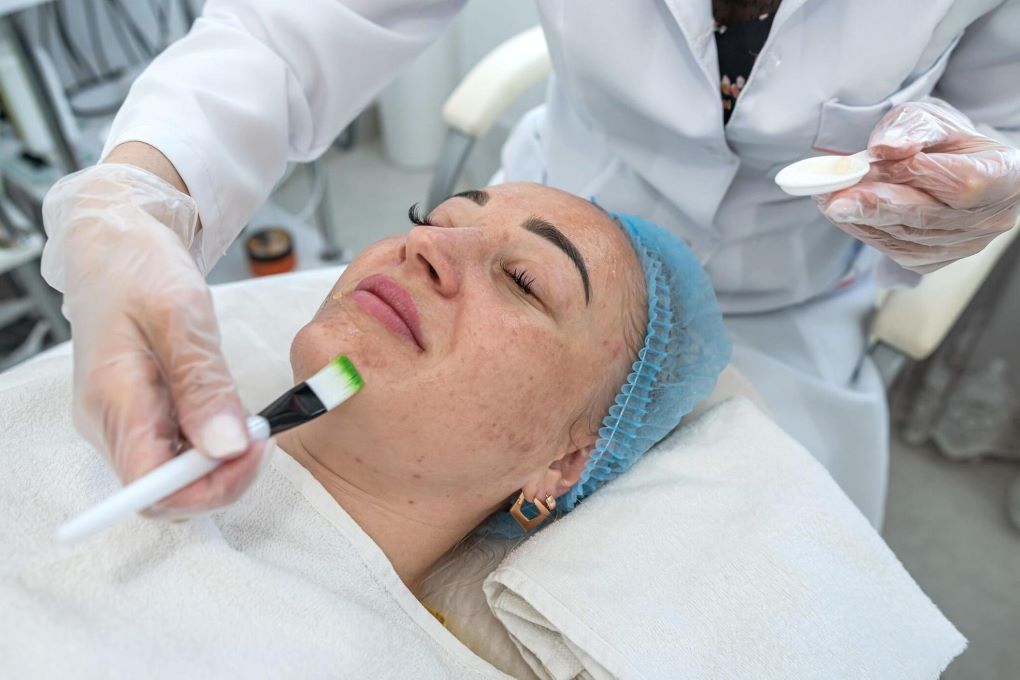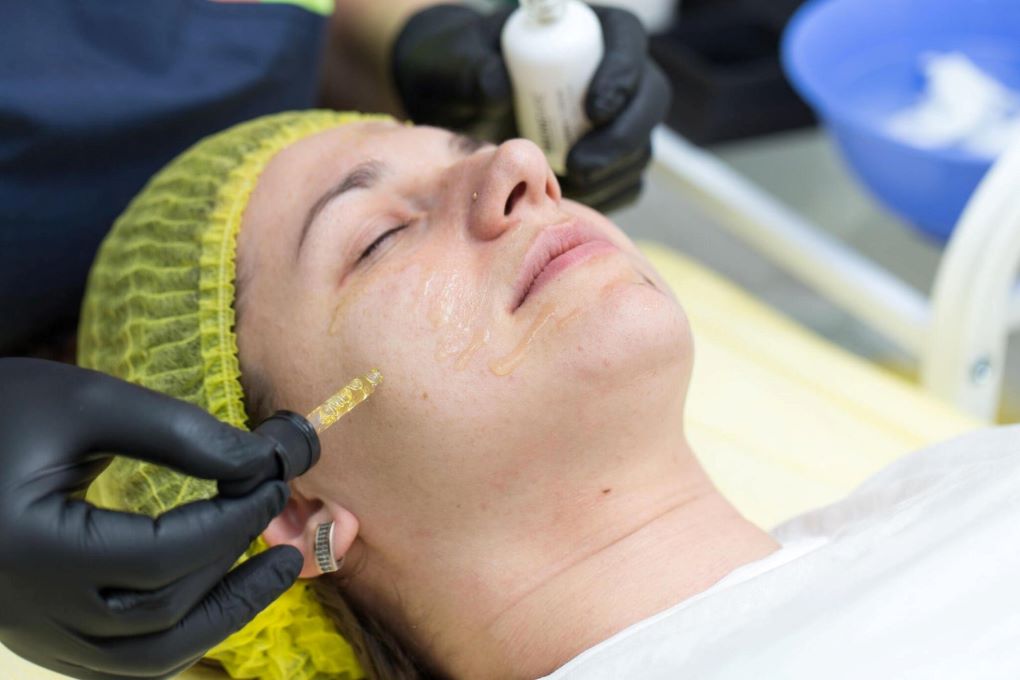In today’s world, confidence plays a pivotal role in how we navigate our personal and professional lives. And while confidence often stems from various factors, one significant contributor is our appearance. Our skin, in particular, can significantly impact our confidence levels. Issues such as pigmentation can affect not only how we look but also how we feel about ourselves.
However, with advancements in skincare technology, pigmentation treatments have become more accessible, offering individuals a way to address these concerns and unlock newfound confidence. In this article, we’ll delve into the world of pigmentation treatments, exploring how they enhance skincare routines and empower individuals to feel more confident in their skin.
Understanding Pigmentation
Before delving into pigmentation treatments, it’s essential to understand what pigmentation is and how it affects the skin. Pigmentation refers to the coloring of the skin, which is primarily determined by melanin, a pigment produced by melanocytes within the skin.
While some level of pigmentation is normal and healthy, issues arise when pigmentation becomes uneven or excessive, leading to concerns such as dark spots, sunspots, melasma, and hyperpigmentation. If you’re looking for pigmentation treatment for skin enhancement, please don’t hesitate to contact The Verve Lounge.
Several factors can contribute to pigmentation irregularities, including sun exposure, hormonal changes, genetics, and skin trauma. Regardless of the cause, pigmentation concerns can impact one’s self-esteem and confidence, prompting individuals to seek effective solutions.

The Impact of Pigmentation on Confidence
Pigmentation concerns can manifest in various forms, from freckles and age spots to more pronounced patches of discoloration. Regardless of their severity, these imperfections can affect how individuals perceive themselves and how they are perceived by others.
Many people with pigmentation issues may feel self-conscious or insecure about their skin, leading to a reluctance to socialize or engage in activities where their skin is visible.
Furthermore, pigmentation concerns can also take a toll on mental well-being, contributing to feelings of low self-esteem and even depression in some cases. The psychological impact of pigmentation should not be underestimated, as it can significantly impact one’s quality of life and overall sense of confidence.
The Role of Pigmentation Treatments
Fortunately, advancements in dermatology and skin care have led to the development of various pigmentation treatments that can effectively address these concerns. These treatments work by targeting the underlying causes of pigmentation irregularities, such as excess melanin production or skin damage.
Types of Pigmentation Treatments
Pigmentation treatments vary based on the type and severity of pigmentation. Options include topical creams, chemical peels, laser therapy, and intense pulsed light (IPL) therapy, each targeting different forms of pigmentation for clearer, more even skin.
Topical Treatments
Topical treatments include creams, serums, and lotions containing active ingredients such as hydroquinone, retinoids, vitamin C, and alpha hydroxy acids (AHAs). These products work by inhibiting melanin production, promoting cell turnover, and fading existing pigmentation.
While topical treatments can be effective for mild pigmentation issues, they may take longer to show results compared to other treatment modalities.
Chemical Peels
Chemical peels involve the application of a chemical solution to the skin, which causes exfoliation and peeling. This process helps to remove the outer layers of the skin, including pigmented cells, revealing smoother, more even-toned skin underneath.

Chemical peels are available in various strengths, with superficial peels being suitable for mild pigmentation concerns, while deeper peels are reserved for more severe cases.
Laser Therapy
Laser therapy, also known as laser resurfacing or laser skin rejuvenation, uses concentrated beams of light to target and break down excess melanin in the skin. This process helps to fade pigmentation and stimulate collagen production, resulting in smoother, more evenly toned skin.
Laser therapy is highly effective for treating a range of pigmentation concerns, including sunspots, age spots, and melasma, with minimal downtime.
Intense Pulsed Light (IPL) Therapy
Intense pulsed light (IPL) therapy uses broad-spectrum light to target pigmented cells in the skin. The light energy is absorbed by the melanin, causing it to break down and fade over time.
IPL therapy is particularly effective for treating sun damage and hyperpigmentation on the face, neck, chest, and hands, with minimal discomfort and downtime.
Benefits of Pigmentation Treatments
Pigmentation treatments offer numerous benefits, including reduction of dark spots, hyperpigmentation, and uneven skin tone. They enhance skin clarity, boost confidence, and promote a more youthful appearance. Additionally, these treatments can improve skin texture and overall complexion, leading to brighter, healthier-looking skin.
Improved Skin Tone and Texture
One of the primary benefits of pigmentation treatments is the improvement in skin tone and texture. By targeting pigmented cells and promoting collagen production, these treatments help to achieve a smoother, more even complexion, enhancing the overall appearance of the skin.
Boost in Confidence
Perhaps the most significant benefit of pigmentation treatments is the boost in confidence they provide. As pigmentation concerns fade and skin tone becomes more uniform, individuals often experience a newfound sense of self-assurance and empowerment.
Long-Term Results
While some pigmentation treatments may require multiple sessions to achieve optimal results, the benefits are often long-lasting. With proper skincare maintenance and sun protection, individuals can enjoy smoother, more even-toned skin for months or even years following treatment, further enhancing their confidence and self-esteem.

Incorporating Pigmentation Treatments into Skincare Routines
Integrating pigmentation treatments into skincare routines is key to maintaining results and preventing future pigmentation issues. Here are some tips for incorporating these treatments into your daily skincare regimen:
Consultation with a Dermatologist or Skin Care Professional
Before starting any pigmentation treatment, it’s essential to consult with a dermatologist or skincare professional. They can assess your skin condition, recommend the most suitable treatment option, and provide personalized skincare advice.
Sun Protection
Sun protection is crucial before, during, and after pigmentation treatments. Exposure to UV radiation can exacerbate pigmentation issues and compromise treatment results. Make sure to apply a broad-spectrum sunscreen with an SPF of 30 or higher daily, reapplying every two hours, and wear protective clothing and accessories when outdoors.
Consistent Use of Skincare Products
In addition to professional treatments, incorporating skincare products containing active ingredients such as retinoids, vitamin C, and niacinamide can help maintain and enhance treatment results.
Patience and Persistence
Achieving optimal results with pigmentation treatments requires patience and persistence. It may take several weeks or months to see noticeable improvements, depending on the severity of your pigmentation concerns and the chosen treatment modality. Stick to your treatment plan and skincare regimen consistently, and trust the process.
Conclusion
Pigmentation concerns can have a significant impact on one’s confidence and self-esteem. However, with the advancement of pigmentation treatments, individuals now have effective solutions to address these concerns and unlock newfound confidence in their skin.
By incorporating pigmentation treatments into their skincare routines and following proper skin care practices, individuals can achieve smoother, more even-toned skin and feel more confident in their appearance. Remember, confidence begins with healthy, radiant skin, and pigmentation treatments can help you achieve just that.
